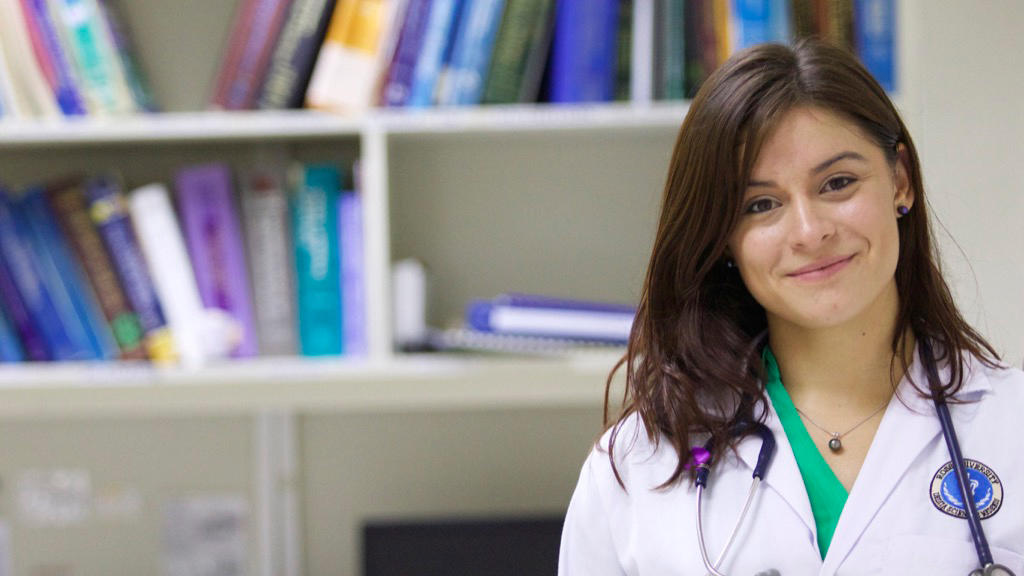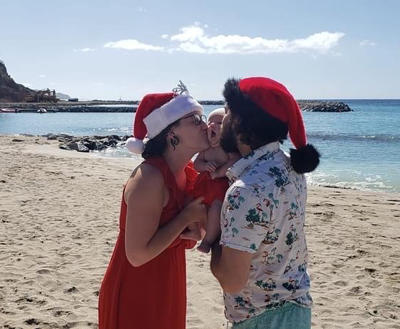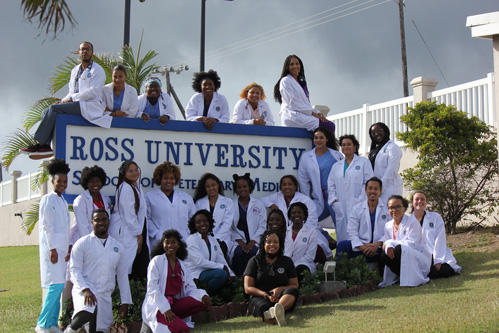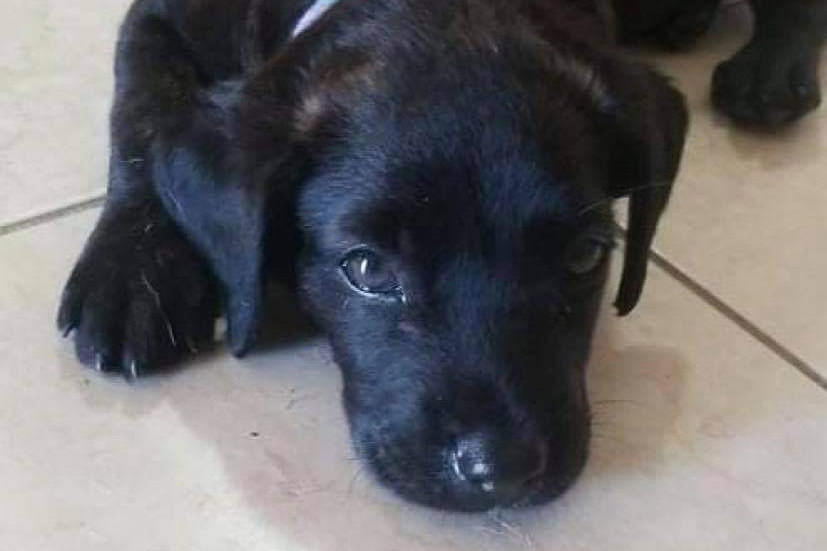“I spent the next hour across from [a career advisor] who was very diligent in talking me out of my dream,” says Erika Blanco, now a fifth-semester student at Ross University School of Veterinary Medicine (RUSVM). “He told me to be realistic, to look at the evidence that supported my shortcomings and to accept that I would never become a veterinarian.”
Blanco wasn’t having any of that. Being a veterinarian had been her dream since she was a young child, and she wasn’t about to give up now.
“I refuse to argue for my limitations,” Blanco told the advisor. “I may not get there the fastest, I may not take the traditional route, but I do know exactly what I am capable of and I will find a way.”
HOW SHE FOUND HER WAY
When Blanco was an undergraduate student at Santa Fe College, she was diagnosed with three learning disabilities. Those are the shortcomings that the advisor was referring to above, and they’re why she struggled to pass general chemistry (she had to take it three times). And ultimately, they were why she couldn’t gain admission to the competitive animal science program at the University of Florida (UF).
“I was so upset that all I could do was call my father in tears and tell him what happened,” Blanco recalls upon receiving her rejection letter from UF.
Her father’s reaction? He told her to knock on every single door in the agriculture college building at UF until she found someone who would help her.
Becoming a veterinarian had been Blanco’s dream since she was a child, and she wasn’t about to give up now. All she needed was an open door.
IF A DOOR ISN’T OPEN, JUST KNOCK
So she took her dad’s advice.
Eventually, she reached the office of the Dean of the Agriculture and Life Sciences College, and told him her story, including her exceptional grades in economics, finance, and physics. He recommended UF’s food and resource economics bachelor’s degree program. She earned that degree—with an emphasis on economic policy—and spent the better part of a decade gaining experience in the veterinary field as a large animal, small animal, and emergency veterinary technician.
“The dean was incredibly helpful, and I received a great education at UF,” Blanco says.
But in the end, she didn’t lose sight of her goal—earning her veterinary degree. Her UF degree was just one step along that path.
HOW RUSVM BECAME HER TOP CHOICE
Blanco learned about RUSVM while she was working as a large animal technician at the UF’s College of Veterinary Medicine, and it quickly became her first choice. Working alongside clinical students from a variety of schools, she found that she admired RUSVM students’ willingness to go the extra mile.
“I would be on overnight shifts where equine colics had been coming in steady all day long, and we would get caught up on cases, and I could go back to the triage area and begin cleaning for the next case,” she recalls. “Numerous times a Rossie would come and clean with me. Even when I told them to go home and get sleep they would just smile and help me set up the area.”
Blanco also appreciated RUSVM students’ reputation for having excellent technical skills, experience, and adaptability in a crisis.
RUSVM soon became Blanco’s only choice.
“When I had my interview with Ross, I knew they could see I believed in myself and that nothing was going to stop me from achieving my dream,” she says.
DOWN ON THE ISLAND, UP BEFORE THE SUN
Once on St. Kitts, Blanco was ready to face her new experience head on, and didn’t waste any time filling her schedule.
She became involved in numerous student clubs and organizations, including the RUSVM Surgery Club, ZEW, the Student Wellness Committee, VIDA and the Veterinary Business Management Association, and was elected Treasurer of the Student Chapter of the American Veterinary Medical Association (SCAVMA).
To maintain her grades with such a busy schedule, Blanco gets up before the sun every day and gets to the gym by 5 a.m.
“I know it sounds crazy, but distractions are at a minimum and I am able to complete a lot of tasks,” she says.
On most weekends, you can find her on campus getting extra study time in.
“It seems like a lot, but we aren't learning to pass exams,” she says. “We’re learning for the day when a patient is in critical condition and we are the only person in the room who can save its life.”
To other potential veterinary students who have faced rejection, Blanco has one message: Never stop believing in yourself.
“If this is your dream, don't stop working for it,” Blanco says. “Expect that there may be bumps in the road, but what is important is how you handle them. Keep your goal steady, but be flexible about the path to get there,” she says.







